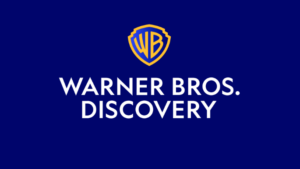
After more than 40 years of operation, DTVE is closing its doors and our website will no longer be updated daily. Thank you for all of your support.
Warner Bros. Discovery’s evolving Max strategy

Source: Warner Bros Discovery
Warner Bros. Discovery unveiled new details of its international expansion plans for its Max streamer today, as its direct-to-consumer division achieved full-year EBITDA profitability for the first time.
Speaking on the company’s full-year earnings call, global streaming and games president and CEO JB Perrette provided details of the timing for the much-anticipated international rollout of the streamer.
WBD plans to roll out Max to France and Belgium in the second quarter (in time for the Paris Olympics) with launches in Asia and Australasia to follow next year. Other European markets including the UK will follow in 2026.
International rollout
The rollout plans for Max highlight one of the dilemmas facing WBD and its peers going forward: whether to retain rights for direct-to-consumer services or license to third parties for sure-fire revenue. With the struggles of many streamers leading their owners to revive licensing, it is notable that WBD is mostly not going down this route.

JB Perrette
On the earnings call, Perrette said there was “no religion” within the company about “warehousing all our content on Max” and “not doing business with competitors”.
He said licensing deals would be considered “on a case-by-case basis” but shied away from a broader commitment to making content available to third parties. He said that co-exclusive deals made “a lot of sense” and promised that decisions are generally data-driven within certain “red lines”.
What of existing licensing partnerships in territories pencilled in for Max launches? Sky in the UK, Germany and Italy is the most high-profile example. Perrette’s comments on the earnings call seem to suggest however that WBD still has a strong belief in continuing down the direct-to-home path.
“We have deals in those markets with Sky, which has over the years been a great partner to us in many ways – and will continue to be a great partner – but having our own direct to consumer product in those markets is a core strategic initiative for us,” he said.
Perrette pointed to fact that WBD already has D2C initiatives up and running in the UK – discovery+ and TNT Sports, its JV with BT, which he said was “going very, very well”.
Regarding Sky, the Comcast-owned pay TV provider has perhaps unwittingly given WBD evidence of the attractiveness of its flagship titles in the markets in which the partnership is operative, sowing the seeds from which Max will grow into a consumer platform.
“We see how well our content works in in the UK Germany and Italy,” he said, showing that there will be “a meaningful and real opportunity to…grow subscribers”.
That doesn’t mean abandoning partnerships altogether. WBD is keen on leaning on the footprints of established distributors to further its goals – but access to the content will be via the app.
“There are a number of distribution partners in all these markets that are very eager to find ways to help us get to market faster and scale faster and doing it with a partner in many cases can drive a lot of efficiencies from a marketing standpoint and get us to scale very quickly,” said Perrette.
The preference for D2C will not be universal. Exceptions include India, where WBD has struck a “very attractive deal” with Reliance to license its content. But Europe, where the company is targeting some 22 markets, and Latin America are seen as core to the D2C strategy.
The Max mix
In his opening remarks on the call, WBD CEO David Zaslav made the point that Max is still “only available in less than half the addressable households and markets as compared to our larger peers”, implying that its growth prospects are perhaps stronger than those of better-established rivals. That view will play into a strategy of keeping more content to fuel growth.

David Zaslav
He also pointed out that Max’s growth, success in reducing churn, and achievement of EBITDA profitability last year came during a time when the supply of new content was choked off by the Hollywood strikes.
“We didn’t have as much content as we wanted for Max and we’re now moving forward with a great slate,” he said, citing examples such as the most recent season of True Detective along with forthcoming The Penguin and season two of House of the Dragon, along with movies such as Dune part 2 and Wonka.
The strengthening of the Max proposition as more content comes on stream was also highlighted by CFO Gunnar Wiedenfels on the earnings call, who said that this would also help drive revenue from advertising on the Max ad-supported tier.
“D2C advertising should layer in nicely throughout the year and the business is gaining momentum as it scales with a higher profile slate of shows from HBO scheduled for release throughout the year as compared with the second half of 2023,” he said, adding that “we’re very well positioned to offer a greater share of highly coveted premium streaming inventory”.
Perrette meanwhile made the point that the inclusion in the Max mix of Discovery content had helped improve consumer engagement, with Discovery content regularly appearing in the top 10 most-watched line-up, while the addition of new series and movies over the coming period meant that “the content line-up over the next two-plus years on Max will be the richest, deepest and broadest that I think it ever has been”.
Joint sports streamer
With streaming rising from making a US$2 billion-plus EBITDA loss to a profit in one year, it is no surprise that WBD’s executives were keen to talk up the company’s Max-led prospects. The company’s two other divisions, the studio and TV networks, posted less impressive results, with a string of disappointing box-office numbers on one hand, and a continued decline in linear TV subscriptions and ad revenue on the other.
Renewed enthusiasm for streaming is also manifested in WBD’s participation in the joint US sports project with Disney and Fox that is currently facing pushback from rival Fubo as well as (potentially) from the Department of Justice and pay TV operators.
With those objections likely in mind, Zaslav was keen on the earnings call to talk more about the potential of this streamer to reach the “more than 60 million” US households “that are not in the traditional bundled cable ecosystem” – in particular, younger consumers.
“We have a great relationship with our existing distributors and this is a unique product,” he said. “We don’t see a lot of people unsubscribing from cable in order to get this.”
Renewed confidence about Warner Bros. Discovery’s streaming prospects in general mean that there may be less, rather than more, talk about potential mergers and acquisitions, such as the rumoured interest in a combination with Paramount (news of which was greeted without enthusiasm by industry analysts). On the earnings call Zaslav also seemed keen to play down all talks of M&A.
“I think, as we look to the future, with Max profitable, we can build on that, and we like where we are. We do have optionality to look at other assets, but it’s going to be a very high bar for us. We like our hand where it is and we like our strategy of building Max and deploying all our great creative assets.”
With “profitable top-line growth” from streaming and the goal of US$1 billion in EBITDA for Max this year in sight, Warner Bros. Discovery’s management appear to have something of a spring in their step. That hard-won streaming profitability must however be set against the declining legacy networks business, the slump in advertising and the unpredictability of the movie business. The streaming numbers notwithstanding, WBD missed analyst expectations for revenue and profit in Q4 and its share price took a significant tumble after the results were published. Big media still has some way to go before it reaches the bright sunlit uplands of tomorrow.


